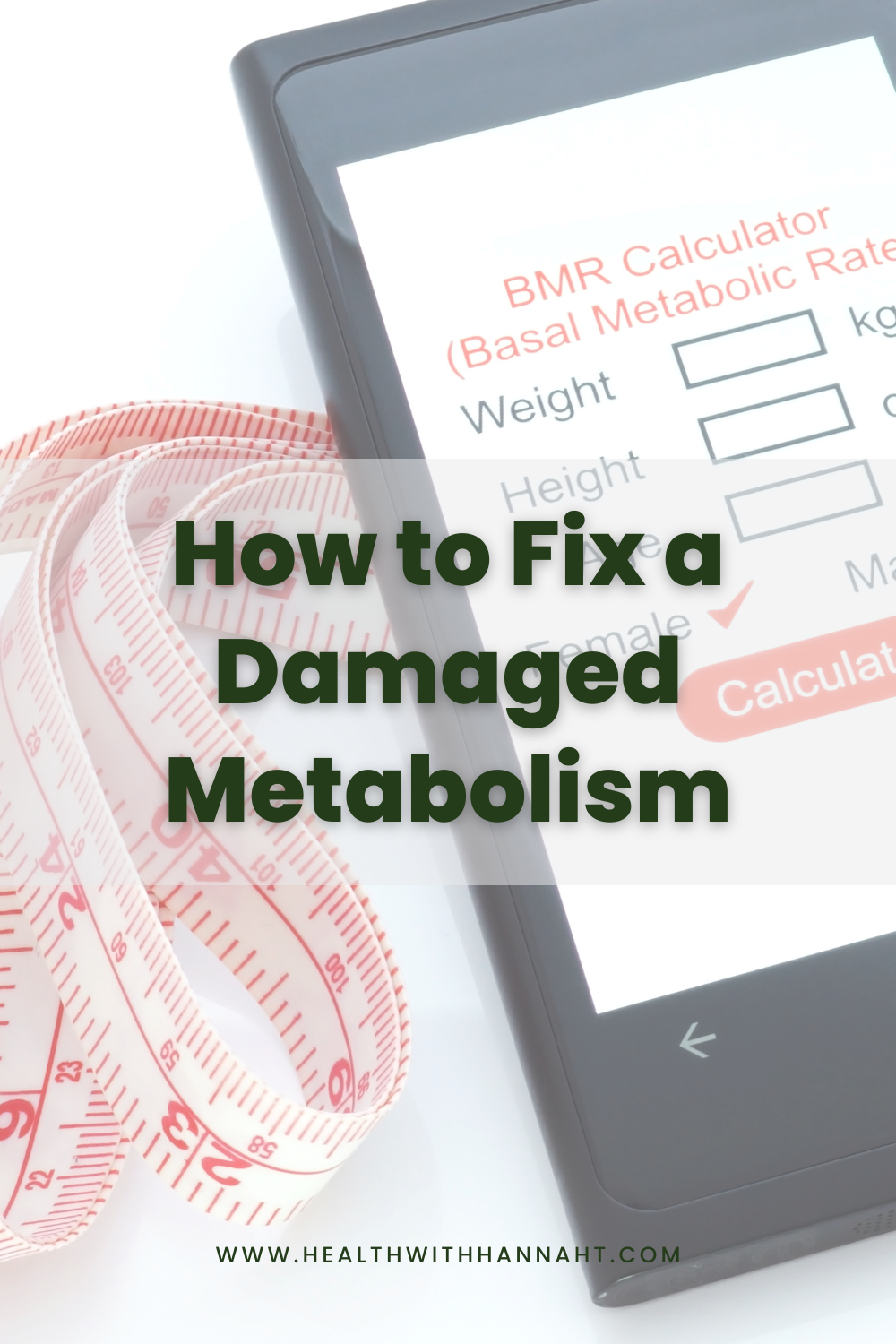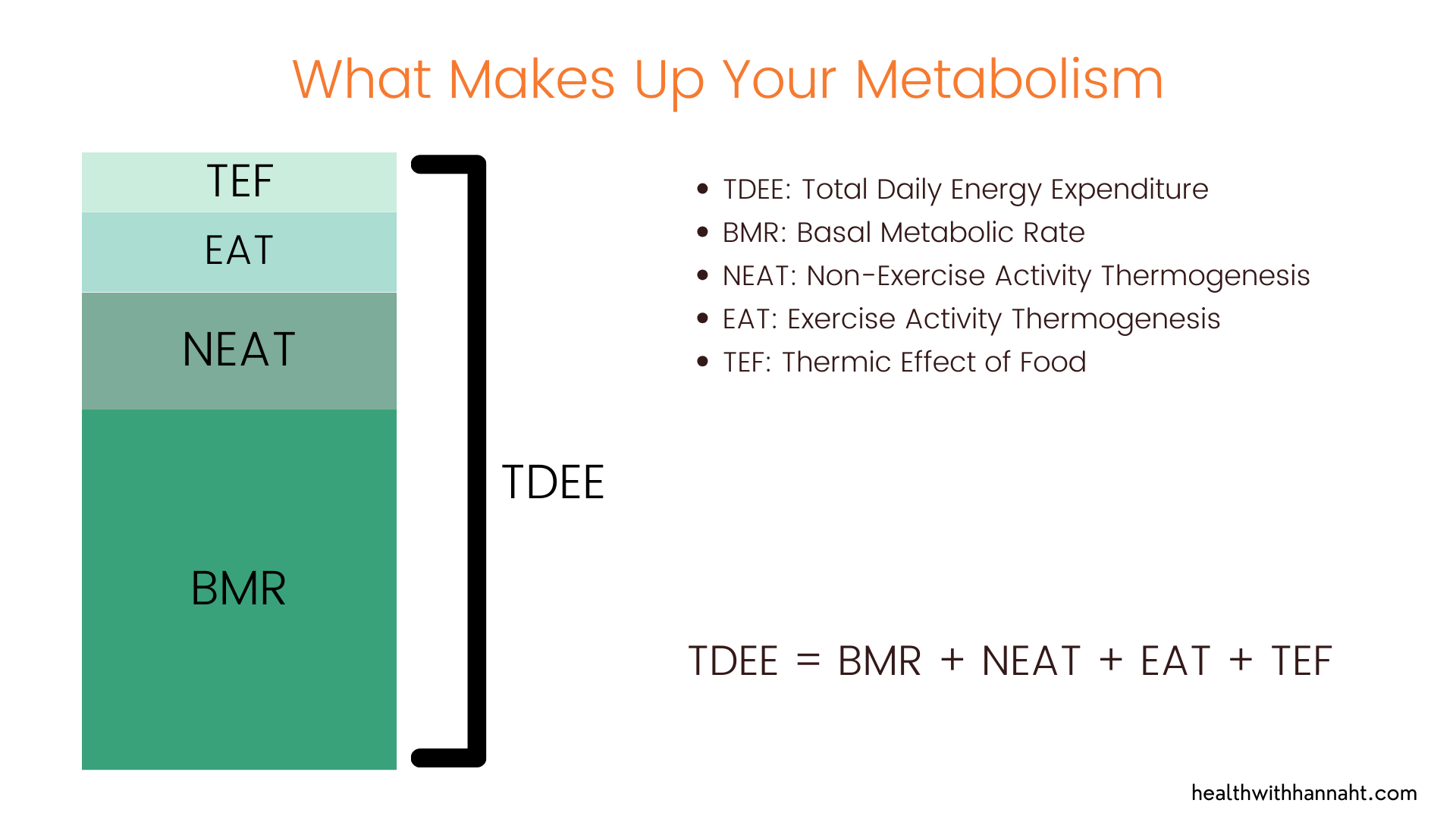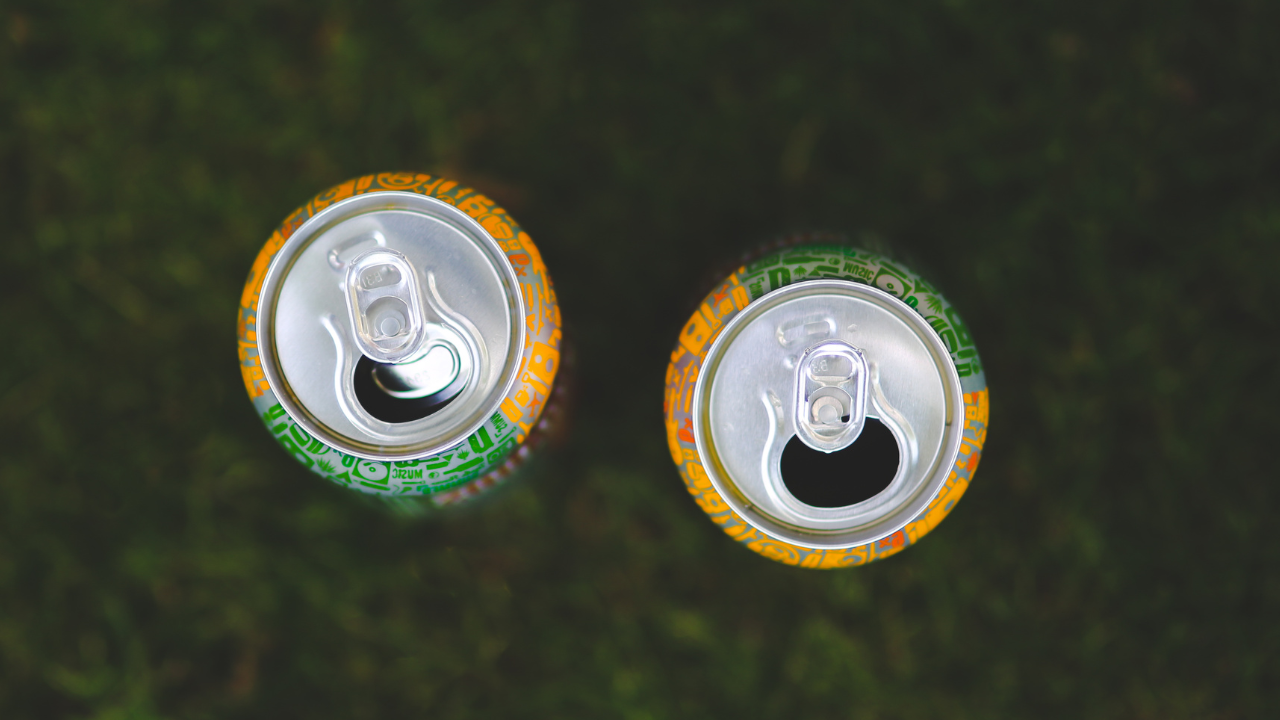How to Fix a Damaged Metabolism
Is starvation mode a real thing? What happens to our metabolism when we diet? Can we speed up a slow metabolism?
If you’re new here, hello and welcome! My name is Hannah and I am a non-diet dietitian here to help you improve your relationship with your food and finally find food freedom.
The term “metabolism” gets thrown around a lot without much explanation of what it actually is or how it works.
Table of contents:
What is your metabolism?
Metabolism refers to the chemical processes that occur in your body to convert food to energy in order to keep your body functioning. There are four main components of metabolism to be familiar with:
Basal Metabolic Rate (BMR)
Non-Exercise Activity Thermogenesis (NEAT)
Exercise Activity Thermogenesis (EAT)
Thermic Effect of Food (TEF)
All of these components together create your total daily energy expenditure (TDEE). In other words, TDEE = BMR + NEAT + EAT + TEF
Clear as mud?
What is metabolic adaptation?
Metabolic adaptation (sometimes referred to as starvation mode, slowed metabolism, or damaged metabolism) is a normal mechanism that happens when we diet and lose weight. It makes sense! When we have less body mass to maintain, our metabolism adapts because we need less calories than we did before.
Our body is also always trying to keep us in homeostasis and as safe as possible. When we restrict our calories, our body does not know if we are intentionally doing it for “health” or because we are stranded on a dessert without any food. Regardless of the cause of calorie restriction, when we don’t eat enough, our body slows the metabolism down so that we need fewer calories to keep our body functioning. It is a survival mechanism.
When we consistently restrict our calories, our metabolism stretches out each calorie’s functions and makes them more efficient. And since we usually aren’t starving in a desert, we may end up eating more than what our metabolism thinks we need and weight regain after dieting is the result.
How to tell if your metabolism has adapted
If you have been restricting your calories for a long time, your metabolism has likely adapted. Your body does not like to be in a caloric deficit for long and it will try its hardest to keep you from losing weight. This is why weight regain after dieting is so common. It’s not because you “lack willpower”, it’s because your body is trying to keep you safe!
Another culprit of metabolic adaption is an extreme exercise, especially if paired with calorie restriction. If you are someone that is doing HIIT workouts every day and also only eating 1200 calories, your body is going to be stressed out and it is going to try to make every calorie be more efficient. Again, your body doesn’t know if you are intentionally doing intense exercise or being chased by a bear so it is going to try to protect you by using every calorie as efficiently as possible and holding on to every calorie that is eaten.
How to increase your metabolic rate
Increase calorie intake
In order to increase your metabolic rate, you will need to increase the calories that you are eating. In other words - stop dieting!
It is important to do this slowly and increase calories by a small amount at a time. If possible, I highly recommend working along side a registered dietitian to make sure that you make calorie adjustments at the appropriate rate. If you have a history of disordered eating or an eating disorder, hyper-focusing on calorie intake will not be recommended.
You may gain weight during this process! This is normal as you “reverse diet”, as some call it, and get back to feeding your body what it actually needs. In fact, if you gain while while adequately nourishing your body, you probably were eating too little and were likely at an unsustainable weight.
Less cardio, more weight lifting
You can also help to increase your metabolic rate by incorporating a weight lifting routine. Now, I am not saying that cardio is not important. I am saying that when we spend hours each week doing HIIT workouts, our body gets stressed. And stress does a number to the human body.
I recommend incorporating more strength training if you are currently doing a lot of HIIT or other cardiovascular exercise. Incorporating more weight lifting will help you to build muscle mass, which is more metabolically active than adipose tissue (fat mass) and will help to increase your basal metabolic rate (BMR).
Learn more about incorporating a joyful movement routine here.
Consume adequate protein
Speaking of muscle mass, eating enough protein will be necessary while trying to improve your metabolism. Protein helps us to stay full for longer, it stabilizes our blood sugars, and it helps to maintain/build muscle.
This does not mean that you should abandon carbohydrates and fats, the other macronutrients! These are very important as well. Try to include a variety of all three while incorporating enough calories overall.
Related post: How Much Protein Do You Actually Need?
Bottom line
If you have been dieting for a long time, your metabolism has likely adapted. In order to increase your metabolic rate, it will be helpful to stop the extreme dieting, eat enough food, and incorporate a weight lifting regimen to maintain or build muscle mass.
Eating as little as possible is not the solution! Did you find this post helpful? Leave a comment below!
Follow along
Featured videos
Disclaimer: this post is for informational and educational purposes only and is not a substitute for professional medical advice.

































